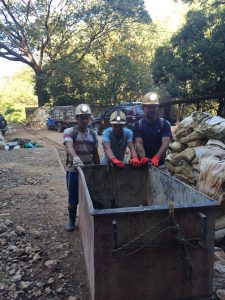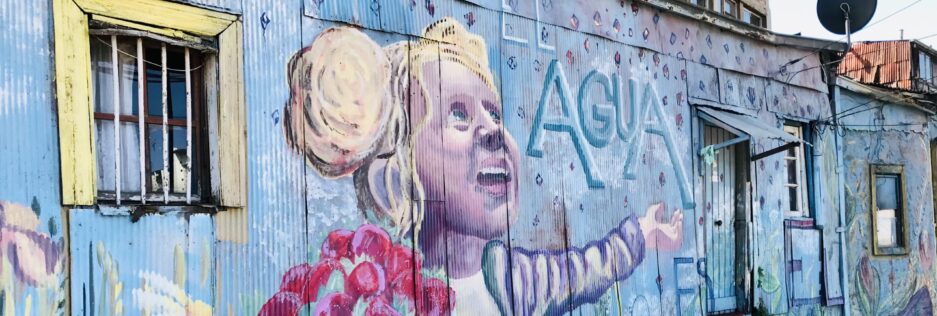Las Juntas de Abangares is a small town in the Gunacaste Province of northwest Costa Rica. Situated among the mountain ranges that form the boundaries of the Abangares Watershed and straddling the Abangares River, Las Juntas offers much in term of natural beauty and tranquility. The community is deeply connected to its early history in industrial gold mining, agriculture, folkloric and religious traditions, and a rural, peaceful way of life. Today it is a small but bustling commercial center that supports an agricultural-based economy.

Las Juntas remains as a mining community. With the departure of industrial-scale mining in the early 1900s, the quest for gold is now driven by local artisanal gold miners who refer to themselves Los Colligalleros. Its rising price and the absence of other economic opportunities has driven 100s of families into the tunnels in search of that gold. But the lack of capital makes the situation in the tunnels more dangerous thanever. Young men are imperiled deep underground, threatened by the collapse of tunnels or asphyxiation. Miners process the gold using mercury in their own back yards along the rivers, threatening their own health as well as the ecology and public health of this community. A forthcoming book by Rich Niesenbaum and Joe Elliott, In Exchange for Gold: The Legacy and Sustainability of Gold Mining in Las Juntas de Abangares, Costa Rica, tells this story through essays and photographs.

We have been working with in this community for approximately 20 years on eco-educational tourism development, and on public health and environmental studies on the effects of local gold mining. We also teach an multidisciplinary course, Community Sustainability, in Costa Rica there every spring. In this course students conduct research at the interface of people and their environment within the context of sustainability. The engage the community through this research and through service oriented projects.
